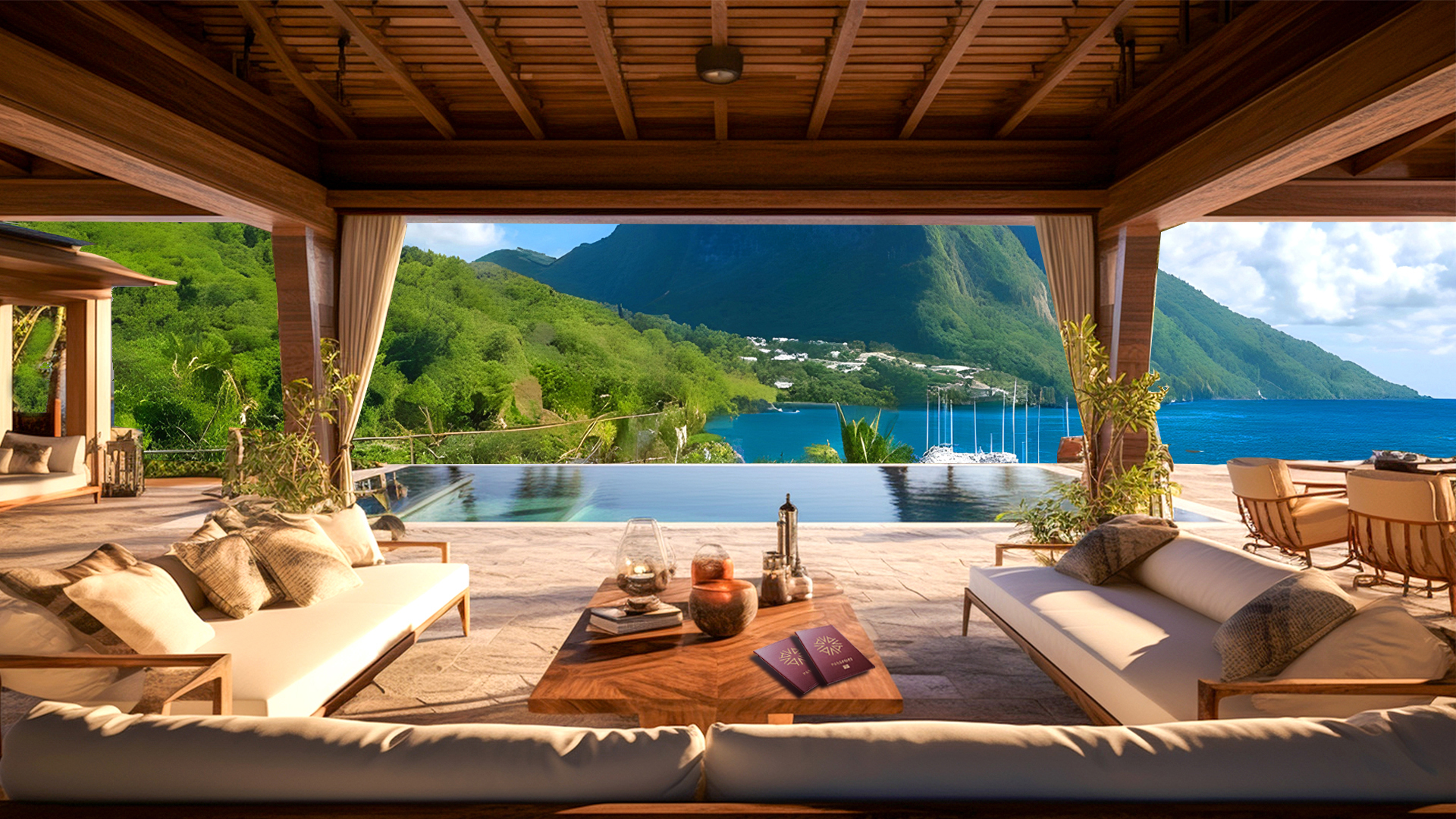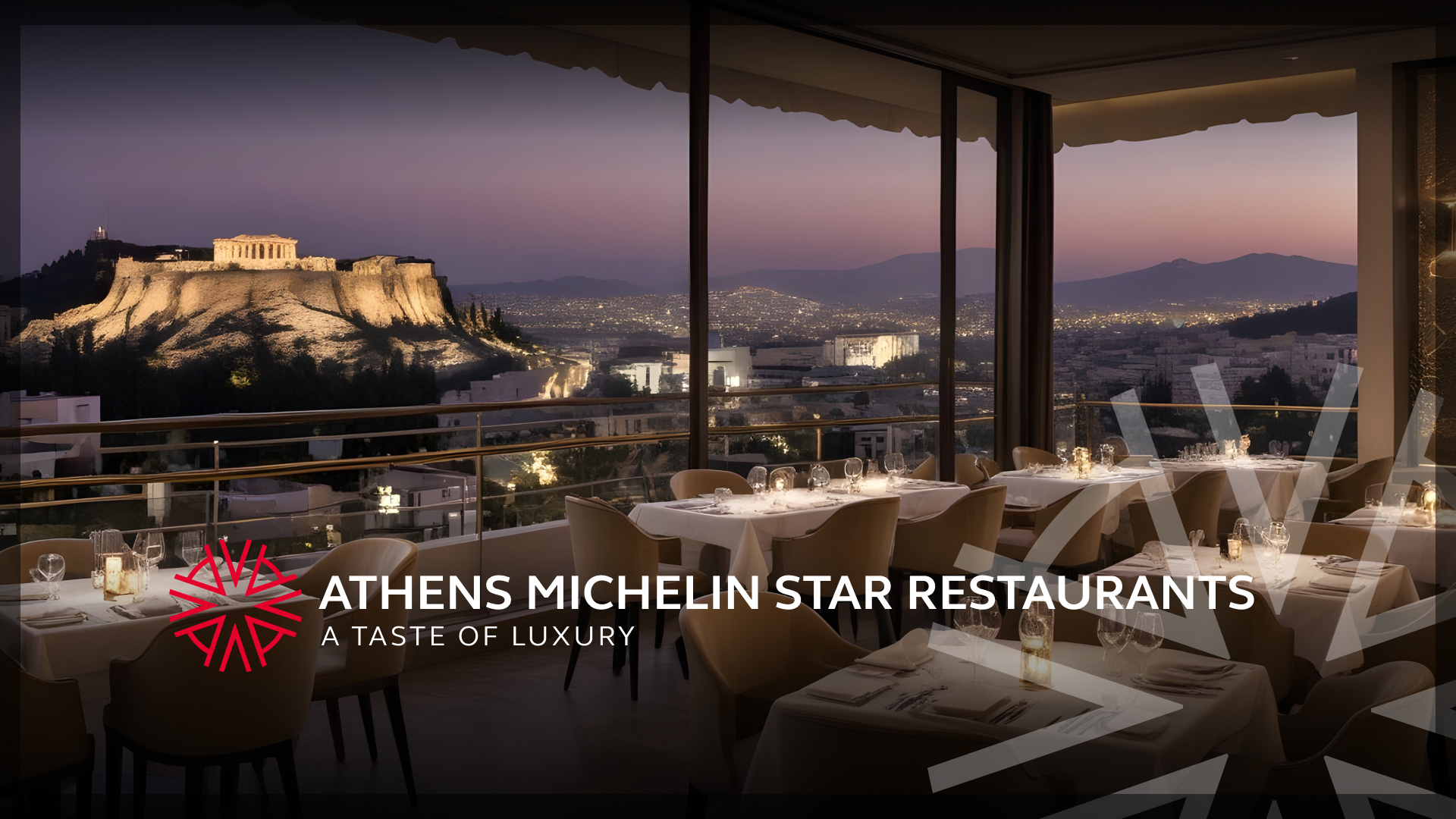The Caribbean has an option for any jet-setter’s standard of living requirements; not only does St. Lucia satisfy the most discerning of them, but it is arguably the most jaw-dropping of any Caribbean island.
St. Lucia’s coastlines are dotted with stretches of white and volcanic black sand beaches. Clear waters are home to coral reefs and active marine life. Mountains, covered in tropical rainforests, rise like spear tips out of the sea.
The landscape attracts an influx of visitors each year, all looking for an unforgettable island experience consisting of days spent:
- On their yachts, sailing around the island and exploring secluded bays
- Excursions into the rainforest to search for local wildlife
- Enjoying relaxed rounds of golf with spectacular ocean views
- Indulging the unparalleled fusion of relaxing soft sandy beaches and high-end refreshments and snacks
In recent years, St. Lucia [pronounced Saint Loo-Sha] has positioned itself as an attractive choice for US entrepreneurs, investors, and families looking for a Plan B or retirement option that is far superior to Mexico or Central America and comes with the added benefit of dual citizenship, a second passport, and the potential for ROI on their investment.
But regardless of whether you’re contemplating a lavish vacation retreat, Plan B with proximity but separation, or simply a second passport, St. Lucia promises to deliver beyond your expectations.
Historically, global elites and empires fought for this Caribbean crown jewel, but today, any discerning entrepreneur, investor, and family can own their slice of Caribbean paradise.
But, as 2023 has proven, the Caribbean landscape is changing – and does so without notice – so Astons US office in Florida provides this ultimate guide to St. Lucia so you can act fast before missing out.
St. Lucia – The Helen of the West Indies
St. Lucia has a diverse and complex history, marked by its Carib indigenous roots and colonial battles between the French and British – from which it got its nickname that harks back to Greek mythology and Helen of Troy.
Colonial rule is long gone, but both empires impacted the island’s culture, architecture, and language.
St. Lucians are now forging their own future while celebrating their heritage through food, dance, and festivals (the annual Jazz Festival is a particular highlight throughout the Caribbean).
St. Lucia’s economy – like most modern Caribbean economies – is driven by foreign direct investment [FDI] and tourism, particularly in the dry season between December and May.
Tourists come for the year-round climate, with temperatures averaging between 77°F (25°C) and 80°F (27°C), and the island’s unmatched natural beauty. The Pitons, a UNESCO World Heritage site, are not only the focal point of St. Lucia, they are literally unmissable.
If you ask the locals, the concept of “island time” must originate from the island’s culture of how to live life.
This laid-back, relaxed routine is a reality, reflecting the sanctuary from global chaos that drove the routines and business decisions most new St. Lucians call their old life.
The laid-back pace has a certain charm, but it can require an adjustment period if you’ve spent your life in large urban centers like those in the US, UK, and EU.
For example, realizing that organic is special is an urban myth is typically one of the first paradigm shifts the island’s newcomers encounter.
Local markets and stores maintain a daily fresh stock of various local produce and seafood.
Adjusting to the pure and natural level of luxury living that is St. Lucia involves embracing life first and foremost.
It’s a rewarding, enriching experience that shows luxury living in St. Lucia isn’t just about the high-end amenities and natural beauty but also about integrating into the local routine and daily rhythms.
Quick facts about St. Lucia
| Official Language | English is the official language and spoken by all |
| Currency | Eastern Caribbean Dollar (XCD) |
| Political Status | Independent nation within the Commonwealth |
| Capital City | Castries |
| Size | Roughly a quarter of the size of Rhode Island |
| Population | Around 180,000 (according to the World Bank) |
| Cultural Highlights | Drive on the left side of the road |
| Local Cuisine | Infusion of Creole, African, Indian, and French |
Luxury Living In St. Lucia
The island’s property market
St. Lucia is one of the smallest Caribbean islands – along with Dominica and St. Kitts and Nevis – thus, the property market is among the most exclusive and prestigious addresses in the Atlantic Ocean.
Due to the size of the island and the minimal amount of developable land – thanks to nature reserves and preservation – most construction is vertical and leverages both tourism and FDI sectors; think hotel shares.
That is not to say that traditional home ownership is not available in St. Lucia.
It is possible to buy a private estate. However, the available inventory is always very low; the price for such properties will be at least seven digits, and there is never much time to decide; you need to move fast.
That said, while the St. Lucia citizenship by investment program has a real estate option, this is open exclusively to hotel shares and not private traditional homeownership.
However, should you want traditional homeownership and citizenship, investors simply need to opt for the St. Lucia donation option within the citizenship program in addition to their property purchase. That would only add $100K-$175K to the total investment.
Which then raises a valid question: where are the best property investment options in St. Lucia?
From beachfront villas to hilltop estates, the island caters to satisfying property investors seeking opulence rather than structure.
Here’s a closer look at the prime locations and investment opportunities for luxury living in St. Lucia:
- Cap Estate: Situated at the island’s northern tip, Cap Estate is considered one of the most prestigious communities. Expect expansive plots with panoramic views of the Atlantic Ocean on one side and the Caribbean Sea on the other. This area is trendy among golf enthusiasts thanks to the nearby St. Lucia Golf Club, the only 18-hole course on the island.
- Rodney Bay: A bustling hub of activity known as St. Lucia’s epicenter for entertainment and recreation. The real estate market in Rodney Bay includes modern condos, high-class apartments, and waterfront homes with direct access to the bay via the superyacht marina.
- Marigot Bay: Considered by many as the most beautiful bay in the Caribbean, you’ll find villas nestled in the hills that surround the town – providing unparalleled views and tranquility without sacrificing convenience. Sheltered and serene, the area has a five-star resort, fine dining establishments, and a superyacht marina.
- Soufrière: Nestled at the foot of the Pitons, Soufrière and its suburbs are rich in geothermal activity (hot springs and waterfalls). Here, the estates are larger than the lifestyle, with stunning, traditional villas offering private eco-chic retreats designed to blend into the natural landscape.
Dining & the St. Lucia cuisine
St. Lucia’s traditional dishes celebrate its history and tropical location. There are many similarities with recipes you’ll find across the Caribbean, but usually with a distinctly local twist, such as:
- Green figs and saltfish: The national dish, made with green bananas and salted cod, seasoned with peppers, onions, and spices.
- Callaloo Soup: A rich, creamy soup made from callaloo leaves (the Caribbean version of spinach, kale, and collard greens), often cooked with coconut milk, okra, and local meats or crab.
- Lambi: Conch meat cooked in a Creole sauce with a hit of picante.
- Fried Plantains: A typical side dish, fried plantains are so delicious that you won’t realize you’ve eaten an entire plateful until they’re all gone.
Although the island does not have any Michelin-star restaurants (yet), fine dining is the standard.
In reality, the local food scene is extraordinary and offers incredible variety – from elegant restaurants with international acclaim to low-key, casual boutique eateries with a local flare.
Here are some of the most popular options:
- Jade Cuisine, Mamin: Located in the stunning Jade Mountain Resort, this establishment is led by James Beard award-winning head chef Allen Susser. It is self-described as “a celebration of the bold flavors of the Caribbean and the world’s tropical cultures.”
- Orlando’s: Located in Soufrière and one of the most highly-rated restaurants on the island, expect a changing menu of beautifully presented tasting courses.
- Rabot: Part of Hotel Chocolat’s cacao farm in Soufrière and in the middle of the rainforest amid the Pitons, Rabot offers a unique experience incorporating cocoa into savory and sweet dishes. Rabot is listed in the Michelin guide.
- The Cliff at the Cap: Situated in Cap Estate and one of the most difficult reservations to secure in the Caribbean, the Cliff at the Cap is known for its stunning cliff-top views and French West Indian cuisine. Typically open to residents and St. Lucian citizens, the restaurant sometimes operates on a special schedule for international guests.
- The Naked Fisherman Beach Bar & Grill: An elegantly casual beach bar, The Naked Fisherman is tucked away beneath Cap Maison and offers a seafood-focused menu cooked to perfection and a breathtaking ocean view. Naked fishing is no longer practiced.
- Private Chefs: Though eating out is enjoyable and as much about being seen as it is about the food, it is relatively common in St. Lucia’s upscale neighborhoods to host their own private fine dining events. Hiring a private chef for your own impressive dinner party is the height of status in St. Lucian society.
Enjoying St. Lucia’s exclusive activities and amenities
Regardless of your interests or whether you seek adventure or relaxation, the island will not leave you wanting more.
Yachting and Sailing
Surrounded by the serene waters of the Caribbean Sea, St. Lucia is a prime destination for yachting enthusiasts. The island boasts several marinas and harbors equipped to cater to luxury yachts and sailboats.
One option is Marigot Bay, which offers high-end facilities for superyachts up to 85 meters.
Marigot Bay is a stunning location in and of itself – making it a lovely place to relax and take in the views from the deck. Plus, the surrounding area is filled with upscale dining and shopping options.
Arguably, the most prestigious superyacht marina is Rodney Bay Marina – the only IGY marina in St. Lucia.
In fact, only four Caribbean islands have elite IGY superyacht marinas, and St. Lucia’s Rodney Bay is a standout amongst them.
Rodney Bay offers 250 berths, accommodating superyachts up to 85 meters, is well-equipped with modern facilities, and is close to vibrant nightlife and beautiful beaches—everything you would demand from IGY.
Island golfing
Naturally, the island’s location makes for a stunning backdrop to a morning or afternoon round of golf.
Two courses in St. Lucia stand out, both incredibly popular with the expat community.
The newly opened Point Hardy is an 18-hole championship course that follows a 1.5-mile stretch of dramatic coastline. It’s received exceptional professional feedback since opening in December 2023, so it’s quickly gaining interest from golfers worldwide.
Sandals St. Lucia has been around much longer, first opening in 2001. Located in Cap Estate, it’s an 18-hole championship course set within a lush, tropical landscape.
Scuba Diving and Snorkeling
St. Lucia has a maritime heritage, and for good reason. In addition to sailing, its marine life and underwater landscapes make it a top destination for scuba diving and snorkeling.
One particularly trendy location is the Anse Chastanet Reef. Just set back from the shore, the reef provides divers and snorkelers with a vibrant underwater world teeming with colorful fish, corals, and even sea turtles.
Another option is to dive around the base of the Pitons, with its steep underwater drop-offs and rich marine biodiversity.
Superman’s Flight is considered one of the best diving sites in the Caribbean and has been featured in major international media outlets.
Luxury shopping – Island-style
We’ll be the first to admit that St. Lucia may not be on par with the high-end shopping experience you can have in Paris, Milan, New York, or Rodeo Drive.
Given St. Lucia’s ethos of being luxuriously unique, the island’s shopping scene is more focused on local crafts, artisan boutiques, and duty-free shopping. But there are select places where you can find the typical high-end labels, with Rodney Bay Marina being the epicenter for luxury brands and outlets.
There are high-quality local goods, art galleries, studios, and venues – such as the Eudovic Art Studio – that showcase the work of talented local artists and craftsmen, providing exclusive one-of-a-kind handmade pieces that reflect the island’s culture and beauty.
Private education
The island’s relatively small size allows for a close-knit educational community of private institutions where parents and teachers can collaborate to support their child’s development and well-being.
The most popular options are:
- International School St. Lucia (ISSL), Rodney Bay
- The Montessori Centre, Rodney Bay
St. Lucia transforms private banking into a personal asset
Among the many investment reasons St. Lucia is an asset that every entrepreneur, investor, and family needs to leverage, the offshore banking element is in the Top 5.
While virtually every offshore banking hub offers banking licenses – the ability to literally open your own private bank – only two offshore financial hubs have the historical reputation of credibility and functionality: Vanuatu and St. Lucia.
Not only can entrepreneurs, investors, and families acquire their own banking license in St. Lucia and literally open and operate a ‘family bank’, but there are other strategic power moves such as the St. Lucia IBC.
St. Lucia International Business Company (IBC)
The St. Lucia International Business Company, or IBC, is one of the most strategic power moves any entrepreneur, investor, or family can make.
The IBC is a legal corporate entity that can be created under St. Lucian law to carry out international investment and business activities, and it comes with a multitude of benefits, including:
- Reputable Location: St. Lucia maintains a clean reputation internationally, having never been placed on any blacklist or raised concerns with global financial regulatory bodies
- Open to Foreign Ownership: Individuals from abroad have the ability to establish an IBC in St. Lucia and retain full ownership of the company’s shares
- Exemption from Taxes: IBCs are exempt from paying corporate taxes, personal income taxes, and capital gains taxes in St. Lucia
- Versatile Business Operations: An IBC in St. Lucia can engage in a wide range of international business activities – however, they cannot engage in business in St. Lucia
- Simple Ownership Structure: A minimum of one shareholder and one director is required to form an IBC, and they can be the same entity or individual
- No Capital Requirements: St. Lucia does not require a minimum authorized capital or for the capital to be fully paid up at the time of incorporation
- Confidentiality: Shareholder and director information for IBCs is kept confidential and not made available to the public
- Reduced Reporting: IBCs that choose the tax exemption option do not need to submit financial statements or accounting records for public filing, and they are not subject to audit requirements
All of these are elevated to unprecedented dimensions when the IBC is combined with the citizenship protections and power of being a dual citizen of St. Lucia.
Astons – An official partner of St. Lucia
St. Lucia is an exceptional option for entrepreneurs, investors, and families from both sides of the Atlantic looking for dual citizenship and a second passport, investment options that support ESG and generate ROI, or simply one of the best Plan B strategies money can buy.
St. Lucia offers:
- Luxury living in the Caribbean
- Political security and stability
- Multi-dimensional ROI
- Dual citizenship and a second passport
- A growing economy that values privacy and discretion
Astons US and our Florida-based office are ideally situated to advise and guide entrepreneurs, investors, and families about capitalizing on this Caribbean crown jewel.
Schedule a Free Confidential and Comprehensive Consultation today, and our experts will analyze your wants, dreams, goals, and demands and provide you with a list of solutions that satisfy them all.
Frequently Asked Questions
Virtually all expert sources state that tap water in St. Lucia is potable and fine to drink.
In fact, world-renowned travel experts, Frommers, states in their industry leading guide on St. Lucia:
Water — Water here is generally considered safe to drink; if you’re unsure or have a delicate constitution, stick to bottled water.
But, as with any destination, everyone can have different reaction to local water, and as a general rule, bottled water tends to be the safest rule of thumb.
Whether or not you need a visa to enter St. Lucia depends upon which passport you plan to use in order to visit the country.
St. Lucia does maintain visa-free agreements with many countries, including:
- the United States
- the United Kingdom
- the European Union
- Canada
However, it should be emphasized that visa-free entry is based upon which passport you intend the enter the country with.
For example, if you are an Albanian citizen living in the US with a US Green Card and intend to travel to St. Lucia with your Albanian passport, you would need to secure a visa prior to arrival in St. Lucia.
The Commonwealth, or more precisely, the Commonwealth of Nations, are essentially what was once referred to as the British Empire.
Commonwealth nations are independent countries, but they still fall under the monarchy of the United Kingdom, and thus still recognize the current King of England as their official head of state.
However, it should be noted, that being a citizen or resident of a Commonwealth nation does not – by default – provide any rights within the UK, including visa free access to the UK.
The official language of St. Lucia is English – British English.
Many locals also speak a form of French Creole, but if you only speak English, you will have no issues at all living in St. Lucia.














